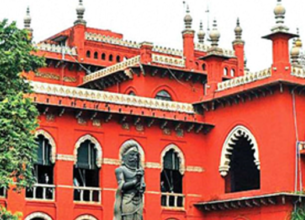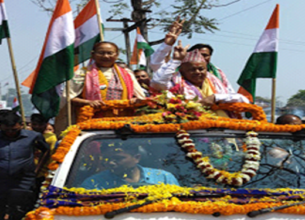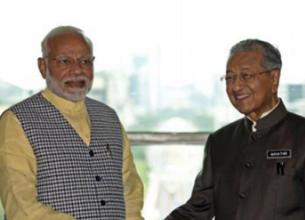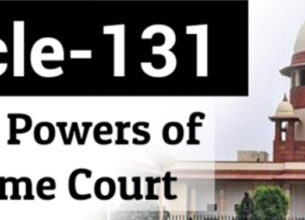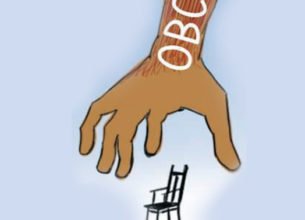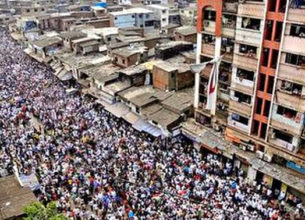Centre yet to notify rules of Citizenship Amendment Act
10, Jan 2022
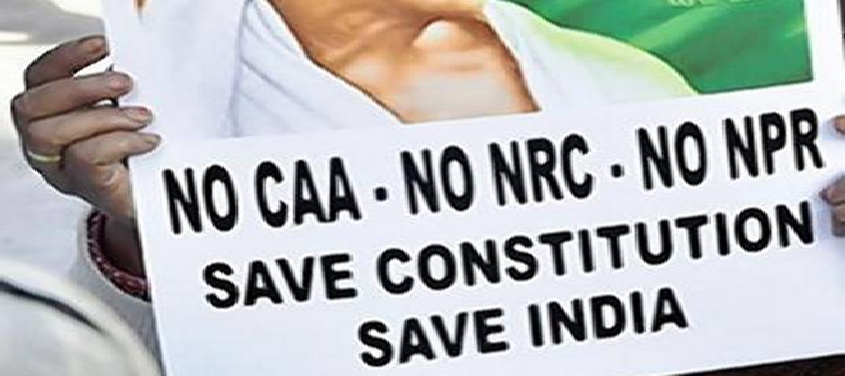
Prelims level : Citizenship
Mains level : GS-II Indian Constitution- Historical Underpinnings, Evolution, Features, Amendments, Significant Provisions and Basic Structure
Why in News?
- The Ministry of Home Affairs (MHA) did not notify the Citizenship (Amendment) Act, 2019 rules even the third extended deadline after the Act was passed.
About the News:
- The CAA was passed by the Lok Sabha in Dec 9, 2019, by the Rajya Sabha on Dec 11, 2019 and was assented by the President on December 12, 2019.
- The MHA issued a notification later that the provisions of the act will come into force from Jan 10, 2020.
- January 9 was the last day of an extension it sought from the two parliamentary committees in the Lok Sabha and the Rajya Sabha to frame the rules.
- But still the rules are not yet notified.
- The legislation cannot be implemented without the rules being notified.
About the CAA and Foreigners Tribunal:
- The Parliament passed the Citizenship Amendment Act (CAA), 2019 that seeks to give citizenship to refugees from the Hindu, Christian, Buddhist, Sikh and Zoroastrian communities fleeing religious persecution from Pakistan, Bangladesh and Afghanistan, who came to India before 31st December, 2014.
- Residential Requirement for citizenship through naturalization from the above said countries is at least 5 years. Residential requirement for citizenship through naturalization for others is 11 years.
- The Act applies to all States and Union Territories of the country.
- The beneficiaries of Citizenship Amendment Act can reside in any state of the country.
- In 1964, the govt. brought in the Foreigners (Tribunals) Order.
- Advocates not below the age of 35 years of age with at least 7 years of practice (or) Retired Judicial Officers from the Assam Judicial Service (or) Retired IAS of ACS Officers (not below the rank of Secretary/Addl. Secretary) having experience in quasi-Judicial Works.
- The Ministry of Home Affairs (MHA) has amended the Foreigners (Tribunals) Order, 1964, and has empowered district magistrates in all States and Union Territories to set up tribunals (quasi-judicial bodies) to decide whether a person staying illegally in India is a foreigner or not.
- Earlier, the powers to constitute tribunals were vested only with the Centre.
- Typically, the tribunals there have seen two kinds of cases: those concerning persons against whom a reference has been made by the border police and those whose names in the electoral roll has a “D”, or “doubtful”, marked against them.
Who are Illegal Immigrants?
- According to the Citizenship Act, 1955, an illegal immigrant is one who enters India without a valid passport or with forged documents, or a person who stays beyond the Visa Permit.
What is NRC?
- The National Register of Citizens (NRC) is meant to identify a bona fide citizen.
- In other words, by the order of the Supreme Court of India, NRC is being currently updated in Assam to detect Bangladeshi nationals who might have entered the State illegally after the midnight of March 24, 1971.
- The date was decided in the 1985 Assam Accord, which was signed between the then Prime Minister Rajiv Gandhi and the AASU.
- The NRC was first published after the 1951 Census in the independent India when parts of Assam went to the East Pakistan, now Bangladesh.
- The first draft of the updated list was concluded by December 31, 2017.
Arguments against the Act:
- The Fundamental Criticism of the Act has been that it specifically targets Muslims. Critics argue that it is violative of Article 14 of the Constitution (which guarantees the right to equality) and the principle of secularism.
- India has several other refugees that include Tamils from Sri Lanka and Hindu Rohingya from Myanmar. They are not covered under the Act.
- Despite exemption granted to some regions in the North-eastern states, the prospect of citizenship for massive numbers of illegal Bangladeshi migrants has triggered deep anxieties in the states.
- It will be difficult for the government to differentiate between Illegal Migrants and those Persecuted.
Arguments in Favour:
- The government has clarified that Pakistan, Afghanistan and Bangladesh are Islamic republic’s where Muslims are in majority hence they cannot be treated as persecuted minorities. It has assured that the government will examine the application from any other community on a case to case basis.
- This Act is a big boon to all those people who have been the victims of Partition and the subsequent conversion of the three countries into theocratic Islamic republics.
- Citing partition between India and Pakistan on religious lines in 1947, the government has argued that millions of citizens of undivided India belonging to various faiths were staying in Pakistan and Bangladesh from 1947.
- The constitutions of Pakistan, Afghanistan and Bangladesh provide for a specific state religion. As a result, many persons belonging to Hindu, Sikh, Buddhist, Jain, Parsi and Christian communities have faced persecution on grounds of religion in those countries.
- Many such persons have fled to India to seek shelter and continued to stay in India even if their travel documents have expired or they have incomplete or no documents.
- After Independence, not once but twice, India conceded that the minorities in its neighbourhood is its responsibility. First, immediately after Partition and again during the Indira-Mujib Pact in 1972 when India had agreed to absorb over 1.2 million refugees. It is a historical fact that on both occasions, it was only the Hindus, Sikhs, Buddhists and Christians who had come over to Indian side.




